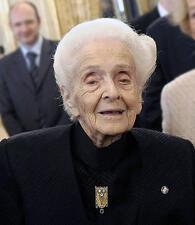
Rita Levi-Montalcini
Rita Levi-Montalcini was a Nobel Prize winning doctor, known for her discovering of Nerve Growth Factor, which is responsible for the development and distribution of nerve cells. Throughout her life she combined research with wide-scale public activity.
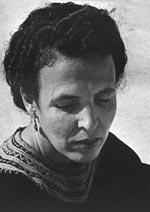
Sara Levi-Tanai
Sara Levi-Tanai was the founder, choreographer, and artistic director of the Inbal Dance Theater. With an original style, she established a unique dance theater that combined the East and West and the early history of the Nation of Israel with the present, as well as creating a new language of movement in the world of dance that is called “the Inbal language.”
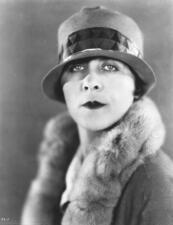
Sonya Levien
From the silent movie era through 1960, Sonya Levien crafted over seventy films ranging from the 1939 Hunchback of Notre Dame to the screen adaptation of Oklahoma! Levien was one of Hollywood’s highest-paid and most highly sought screenwriters, known for her ability to adapt any story quickly and to fix an ailing script.
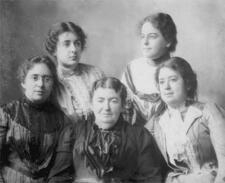
Bertha Szold Levin
Bertha Szold Levin was a Baltimore educator, civic leader, and Jewish activist in the early twentieth century.
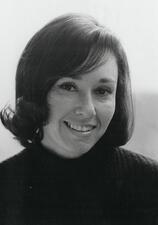
Marj Jackson Levin
Nora Levin
Research librarian and educator Nora Levin’s books sparked controversy among historians, but she helped shape popular understanding of modern Jewish history.
Melba Levin-Rubin
Melba Levin-Rubin was an accomplished early-twentieth-century lawyer who was active in both professional and Jewish communal organizations.
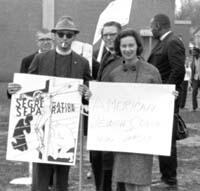
Jacqueline Levine
Lena Levine
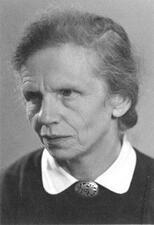
Emma Levine-Talmi
Politician and writer, Emma Levine-Talmi, grew up in a liberal Jewish home in Warsaw before immigrating alone to Palestine in 1924 at the age of nineteen. She was active in Kibbutz life before becoming a member of Knesset for the Mapam party. During her time in the Knesset, she engaged in social issues, including, equal rights for women.
Elma Ehrlich Levinger
Early twentieth-century author and educator Elma Ehrlich Levinger wrote over thirty books for children and several for adults—all of which emphasize the importance of maintaining Jewish identity in America.
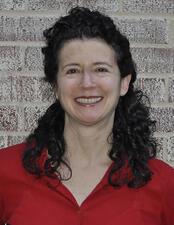
Susan Levitas
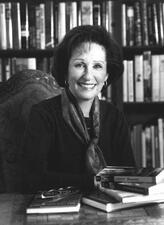
Sonia Levitin
Sonia Levitin mined both her personal history and major historical events for her award–winning books for children and young adults. Her 1970 book Journey to America, which detailed her family’s struggle during the Holocaust, was an instant classic.
Jennie Davidson Levitt
Jennie Davidson Levitt, daughter of Jewish philanthropists Saul and Mary (Cohen) Davidson, continued her family’s tradition of activism and philanthropy with her work for Jewish organizations. She helped rescue Jewish children during the war, and later lobbied for better medical and psychiatric services.

Joy Levitt
Adele Rosenwald Levy
Adele Rosenwald Levy used her affluence to promote public-spirited philanthropy and Jewish causes in the years surrounding World War II.
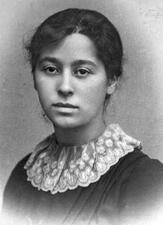
Amy Levy
Novelist, essayist, and poet Amy Levy was a popular and successful writer of the late nineteenth century. Admired by Oscar Wilde, she was the second Jewish woman to attend Cambridge and the first at Newnham College. Her work reflects the autonomous and achievement-oriented ideals of the “New Woman,” as well as her own struggles with depression.
Belle Levy
Florence Nightingale Levy
Florence Nightingale Levy’s most significant achievement was the founding of the American Art Annual in 1898. A comprehensive directory of the American art world, the Annual catalogued schools, associations, exhibitions, and artists nationwide. Levy went on to perform invaluable editing, organizing, and educational roles in the American art world for the next fifty years.
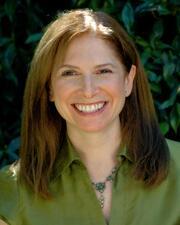
Naomi Levy
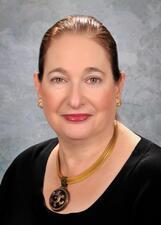
Sandy Levy

Stella Levy
Stella Levy was an early leader of the Women’s Corps of the Israel Defense Forces, serving as commanding officer from 1964 to 1970.
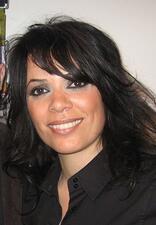
Yasmin Levy
Hassia Levy-Agron
According to the judges who in 1998 awarded her the Israel Prize in the field of dance, Professor Hassia Levy-Agron was remarkable for her artistic and educational contributions over the previous fifty years, as a dancer, choreographer, teacher, and educator who produced many generations of dancers, creators of dance, and dance teachers.
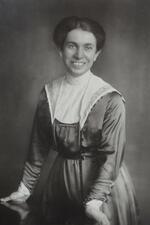
Josephine Levy-Rathenau
Josephine Levy-Rathenau was a feminist and pioneering social reformer whose activism centered on questions of women’s vocational and economic empowerment. The founder of “modern” career counselling in Imperial Germany, Levy-Rathenau decisively advanced the development of professional social work as a new women’s field.


